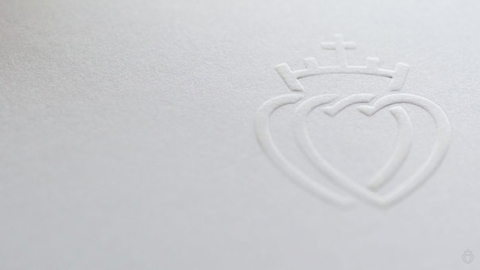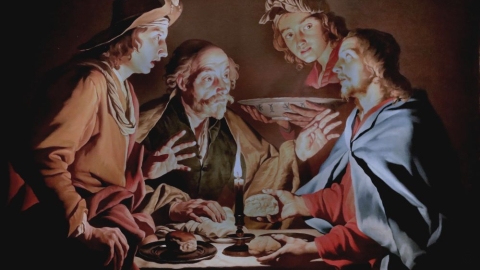Pius XII’s Silence Explained

Des membres du Royal 22e Régiment, participant à la libération de l'Italie, en audience avec le pape Pie XII en 1944
In a landmark work, the man who knows the Vatican’s secret archives best is revealing the extent of the contributions of Pius XII and the Vatican in the rescue of Jews in Nazi-occupied Europe. Or how the sea serpent of “Pius XII's silence” has finally had its neck wrung.
“Four members of my family were gassed at Auschwitz because they were Jews, and at the same time, this Pope was silent!” This cry from the heart, was written by Moshe-Mordechai van Zuiden who is pushing it in an independent column published by The Times of Israel, on September 21, 2020, under an evocative title: Should the Jews prevent the canonization of Pius XII?
For more than half a century, a partisan doxa (opinion) has rehashed ad nauseam the alleged complacency of a pope walled up in guilty silence, in view of the atrocities committed by Nazism, under his pontificate.
This disinformation was orchestrated from the beginning of the 1960s, from Moscow, through the theatrical play The Deputy, by Rolf Hochhuth, adapted for cinema by Costa-Gavras, under the title Amen.
Proof of the facts now makes it possible to sweep so much false information away with a wave of the hand. This mental health work comes from Johan Ickx, director of the historical archive of the Section for Relations with States of the Holy See’s Secretariat of State, who has achieved it in a book published by Michel Lafon editions, on September 10, 2020.
In Le Bureau. Les Juifs de Pie XII [The Office. Pius XII’s Jews], Johan Ickx brings to life the special atmosphere of the second section, this veritable “Vatican Ministry of Foreign Affairs,” during the Occupation period.
The polyglot Flemish archivist, voluntarily exiled in Italy for three decades, provides written and hitherto secret evidence of the extent of the Vatican’s activities to protect, hide, and help the victims of the Shoah, especially in Eastern Europe - Poland, Belarus, Romania - but also in the Eternal City.
Vatican Assistance to Deportees
Interviewed by Le Figaro Magazine on September 25, Johan Ickx revealed three new elements - among many others - that his research has enabled him to update: “first,” explains the archivist, “is the reality of the Vatican providing constant help to Jews from all over Europe, individuals or families, through the action of a desk officer from the Secretariat of State, to whom this daily mission was specifically entrusted: Mgr. Angelo Dell’Acqua.”
Surprisingly, since the courageous action of this prelate was brought to light only a few months ago, Mgs. Dell’Acqua had paid the price of a post-mortem smear campaign: “it shows how much of the History of Pius XII they continue to ‘create.’ It has been the same technique for fifty years: delegitimizing the characters around Pius XII to the general public in order to indirectly cast an accusing shadow on the Pope,” Johan Ickx soberly emphasizes.
For the author, a second element deserves to be studied by historians: the end of diplomatic relations between the Catholic Church and the Third Reich, on March 17, 1943, after the discovery of a note from the Holy See criticizing religious persecution practiced in Germany and in the occupied territories.
“Remaining a secret until today is an important fact, because from that date, the Holy See, which was diplomatically declared to be at war, was put out of play in all the countries occupied by the Nazis. From that date, the “cold war” between the Vatican and the Nazi regime began,” explains the director of the archives of the second section.
In order to establish an objective judgment on Pius XII, the archivist recalls that two things must be distinguished. First of all a so-called “verbal silence” which never existed and does not correspond to the facts: “Pius XII, as the League of Nations did almost at the same time – led by the English, the Americans, and the Soviets - and the French National Committee, spoke clearly and not half-heartedly on the deportations and mass executions,” recalls Johan Ickx.
And the historian evokes the papal message of Christmas 1942, in which Pius XII, on world airwaves, condemned the fact that “hundreds of thousands [of people] who, without any fault of their own, sometimes only by reason of their nationality or race, are marked down for death or gradual extinction.” To claim that this constitutes silence is bad faith or ideology, not rational thinking.
Then Johan Ickx evokes what he calls “political silence,” which consists of a strategic choice on the part of the Italian Pope: it is a question of practicing a “non-interventionist attitude,” because for the Pope, “not wanting to compromise the life of anyone or the humanitarian actions themselves, strict circumspection was obligatory.”
In fact, the archivist explains in a common sense remark: “At that time, between 1939 and 1945, this attitude was well understood by the majority of Jews. Otherwise, how do you explain why they kept knocking on his door and thanking him? In short, it was political silence as a political tactic, yes, but not verbal silence.”
And when asked why the Church did not subsequently intervene in order to provide proof of its unequaled contribution to the rescue of the Jews of Europe, the archivist replies, referring to a reflection by Mgr. Domenico Tardini, prosecretary of Pius XII then secretary of state under John XXIII: “good does not make noise, and noise does not do good.”
(Sources : Times of Israel/Le Figaro Magazine - FSSPX.Actualités)
Illustration : Canada. Dept. of National Defence / Public domain



